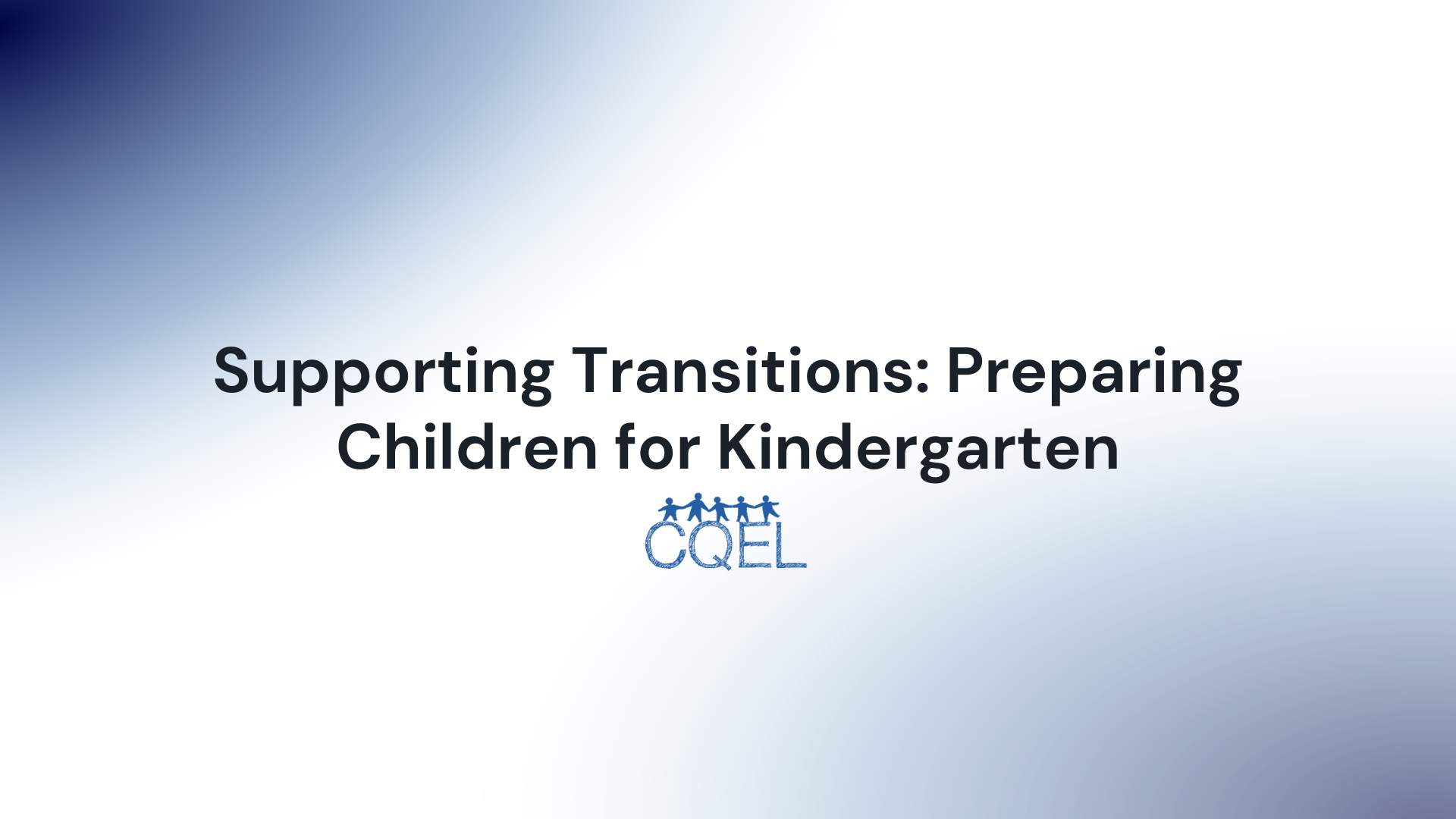Supporting Transitions: Preparing Children for Kindergarten
Our job is not just to foster skills that enhance children's readiness for the school environment, but also to alleviate anxieties and boost their confidence about this major change.

The transition from preschool or a childcare setting to kindergarten signifies a substantial milestone in a child's life. For the first time, children find themselves navigating a structured academic setting, with all the inherent challenges and opportunities that brings. As childcare providers, we play a pivotal role in preparing children for this significant transition. Our job is not just to foster skills that enhance children's readiness for the school environment, but also to alleviate anxieties and boost their confidence about this major change.
Cultivating Academic Readiness Through a Love for Learning
When we talk about academic readiness, it's easy to fall into the trap of focusing solely on the fundamentals such as numbers and letters. While these foundational skills are crucial, true academic readiness goes beyond them. The aim is to cultivate an environment that nurtures curiosity and enthusiasm for learning, making education a joy rather than a chore. One effective approach is to incorporate play-based learning activities that spark curiosity and encourage exploration. Fortunately, resources are available to guide us in achieving this. For example, the California Department of Education's Kindergarten Readiness Guide provides valuable insights into developmentally appropriate academic preparation.
The Importance of Social and Emotional Readiness
Just as crucial as academic readiness is the child's social and emotional preparedness. Kindergarten introduces children to a social setting that's markedly different from what they're used to in a childcare environment. To navigate this new social landscape successfully, children need to have developed a certain degree of emotional resilience and social competence. Key to this is guiding children through cooperative play situations, teaching them essential conflict resolution skills, and fostering emotional literacy. The Collaborative for Academic, Social, and Emotional Learning is an excellent resource that offers valuable tools and guidance on nurturing these vital competencies.
Gradual Introduction of Routines
Kindergarten often brings with it a more structured schedule than children are accustomed to in a childcare setting. One strategy to help children adapt smoothly to this new rhythm of the day is to gradually incorporate more routines into their daily schedule. This could involve setting specific times for snacks, group activities, and quiet periods for reading or rest. The goal is to acclimatize children to a structured day, thereby minimizing any shock when they start kindergarten.
The Critical Role of Independence
Independence is a critical skill for success in kindergarten. Children need to be able to manage a range of tasks, from self-care activities like tying their shoelaces or using the restroom to academic tasks like completing assignments. Encouraging independence in a childcare setting involves promoting self-care skills such as cleaning up after activities and following multi-step instructions. The American Academy of Pediatrics offers a wealth of helpful guidelines and resources on fostering independence in early childhood.
The Need for Open Communication About Transition
One of the most effective ways to prepare children for the transition to kindergarten is to talk about it regularly. By bringing up the topic of kindergarten, explaining what they can expect, and encouraging them to share their feelings and ask questions, we can help alleviate any fears or anxieties. Picture books about starting school, such as "Miss Bindergarten Gets Ready for Kindergarten" by Joseph Slate, can be excellent tools to facilitate these discussions.
Parent Engagement in the Transition Process
The transition to kindergarten isn't something that happens in isolation. Parents and caregivers are integral partners in this process, and it's crucial to keep them involved every step of the way. Provide regular updates on their child's progress towards kindergarten readiness and offer tips on how they can support this preparation at home. Consider hosting a 'Transition to Kindergarten' workshop for parents or sharing resources like the PBS Parents' Guide to Kindergarten, which provides a wealth of practical advice.
Organizing Visits to Kindergarten Classrooms
Finally, if it's feasible, try to organize visits to local kindergarten classrooms. These visits offer children a valuable opportunity to experience the school environment firsthand, which can go a long way in alleviating anxieties about the unknown. Many schools have transition policies in place and may be willing to accommodate visits, so it's worth reaching out to local institutions.
In conclusion, preparing children for kindergarten involves a multifaceted approach that supports not just academic readiness, but social and emotional readiness as well. By incorporating these strategies and making use of the wealth of resources available, we can ensure that the transition to kindergarten is a positive and exciting experience for every child in our care.
